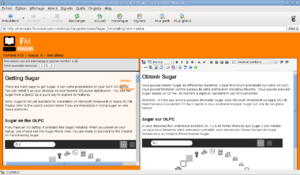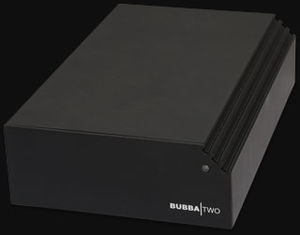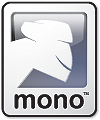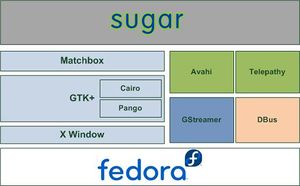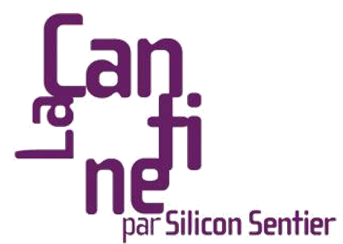CodeCampReport
Cet article est aussi disponible en français: Compte-rendu_CodeCamp
Sommaire
Summary
The purpose of this first OLPC France CodeCamp was to deeply explore the OLPC project, Sugar and the XO. During this intense day, the 40 attendees have been able to learn all what they need to know to be able to contribute to the project.
- The learning workshop was dedicated to draft the requirements for a french version of WikiBrowse and to assess the possibility of doing animation movies with the XO.
- The translation workshop was dedicated to the translation of the FLOSS Manuale.
- The School Server workshop was dedicated to the network configuration of low-power platforms.
- The Sugar workshop gathered people around the development of a Mind Mapping activity and around video integration.
- The Mono workshop let people write development tutorials about Mono/Sugar for C#/.NET developers.
<animoto/>
Detailed report
The CodeCamp started with an introductory conference. This is an occasion to remind everyone about the goals of OLPC, of OLPC France and to go deeper into details about XO and Sugar. Daniel Drake also tells us about his deployment experience in Ethiopia.
Learning Workshop
Eight persons attended to the learning workshop, all of them part of pedagogical associations/projects. Among these projets: 1) Vikidia, an encyclopedy for kids (8-13) written both by kids and adults; 2) Queyras libre, an association helping children create animation movies; 3) Planète Science, an association promoting project-based pedagogy in science and technology.
We mostly dedicated our time to the first two projects. We did an overview of the different ways to select articles in projects like WikiPedia 1.0, and we now need to write down the specifications for a WikiBrowse activity in french. For animation movies, we need to review the softwares that help this kind of activity and which should be ported to Sugar.
This workshop was also a nice way to interact with each other more informally. Discussions revolved around the impact of free software and free pedagogical content in education. We also spoke about the differences between several pedagogical movements: constructionism, constructivism, Freinet's ideas, etc.)
Translation workshop
During the translation workshop, we insisted on what is at stake: first of all, help the children around the world to use the XO, but also encourage developers to anticipate i18n issues when they develop a Sugar activity.
Translation concerns the Sugar system and the activities. We introduced Pootle, the online collaborative translation tool used by OLPC to translate Sugar and some of the activities.
Regarding the translation of the Sugar manuals, we presented the Documentation project, materialized by the FLOSS manuals about XO and Sugar. We presented two sub-projects: writing and translating.
Translating through Pootle and Flossmanuals has been done distantly, along the CodeCamp, by extremely active contributors in Europe (Suisse), Canada (Québec) and in France, from regions outside Paris.
The translation tools used for the applications and the documentation are efficient and user-friendly, they allow any contributor to volonteer depending on his time, only using a web browser.
We hope the development of new Sugar activities and new materials will give opportunities for many translators to contribute to the success of OLPC as a whole, and will specially benefit to the children of french-speaking developing countries.
School Server workshop
The purpose was to study the relevance of using non-standard compact, robust, and low-power platforms such as:
- the Bubba Two server, based on a PowerPC/Freescale processor, from Excito (Suede) (http://www.excito.com)
- the Fuloong mini box, based on a Mips processor, from Lemote Tech (China) (http://www.lemote.com)
- the netbook EEEPC 1000H, based on an Atom (Intel) processor, from ASUSTek (Taïwan) (http://www.asus.com)
On the first two, the goal was to install and configure the services used by the XS server by using a basic environment (Debian). On the netbook EEEPC 1000H, the goal was to install a XS server and to configure the services. The work of the attendees focused on the configuration of the Wifi services.
OLPC France is thankful to Lemote Tech and Excito who lend the computers and for their technical support.
OLPC France (Xavier Carcelle and Nicolas Thill) will also participate to the Fedora 10 Install party, the 6th and 7th of december; during the Fedora 10 celebration, OLPC France will demonstrate the XO and a XS server.
Mono workshop
The purpose of this workshop was to explore Mono as an activity platform for Sugar. Mono is the open source implementation of .NET. Torello Querci, who co-animated the workshop, created the binding letting developers use Mono to develop activities for the XO. This implementation thus allow to extend the Sugar community to all the C#/.NET community.
The workshop started by a presentation of the Sugar architecture by Daniel Drake. He then allowed everyone to create his first activity from scratch, by step-by-step following a tutorial that was prepared specifically for this. The differents ways of designing the graphical interface of the activities have been studied, among which: MonoDevelop and Glade.
Finally, Torello Querci presented the DataStore API. This API is used to store and retrieve data by an activity. Each participant did some test about this.
At the end of the workshop, we had a pre-installed virtual machine and a detailed tutorial. It will allow any .NET developer to concretely become a Sugar developer. This tutorial will be published on the OLPC wiki along with the DataStore tutorial. Several participants expressed their will to continue this workshop by coding a family tree activity (this idea came up as a feedback from the Haitian deployement.)
- Slides DataStore and Mono
- Tutorial Mono on Sugar (français)
- Tutorial Mono on Sugar (english)
- Machine virtuelle pour le tutoriel - nécessite VMWare Player
Sugar workshop
Daniel Drake presented an overview of the Sugar architecture. He then presented the Mind Mapping project, which was selected to illustrate the project.
Each of the participants was able to install and execute the activity on his machine. Each of them then work on reported bugs. Several participants will continue to code on this after the CodeCamp.
After a while, the workshop concentrated on video-related issues with two developers from Dailymotion. More particularily on:
- Totem, plugin to read videos in Browse with subtitles
- Uploading a video either from the Journal or from the Browse activity
This two issues will really help Dailymotion in integrating visualisating and sharing videos from the XO.
Pictures and videos
- http://flickr.com/photos/danone-communities/sets/72157609133178976/
- http://www.viddler.com/explore/danonecommunity/videos/9/
- http://animoto.com/play/S0VfGDiazBXY2gTIJSms2w
Thanks
- Thanks to our sponsors:
- Thanks for their support to:
- Thanks to our guests:
- Daniel Drake
- Torello Querci
- Thanks to all the participants!

